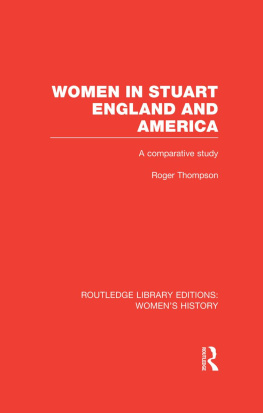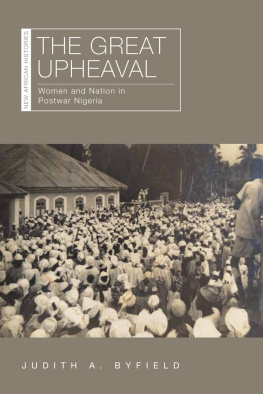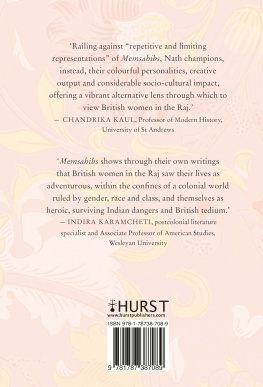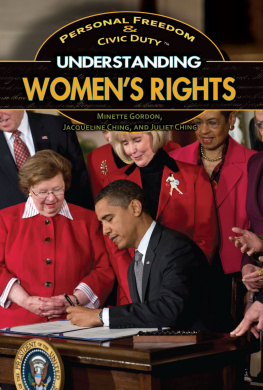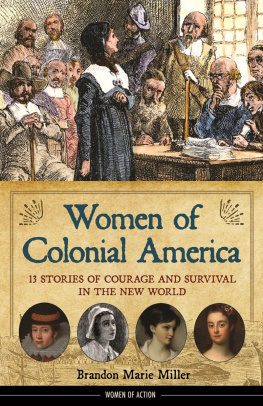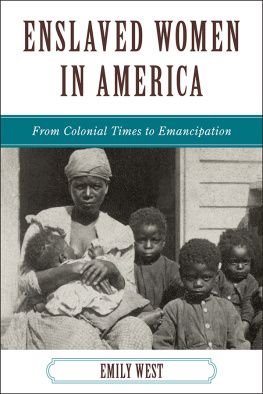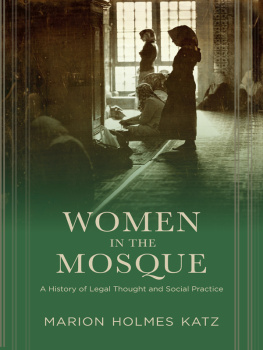The New World in the Atlantic World
Amy Turner Bushnell and Jack P. Greene
Series Editors
Tropical Versailles: Empire, Monarchy, and the Portuguese
Royal Court in Rio de Janeiro, 18081821
by Kristen Schultz
Creole Gentleman: The Maryland Elite, 16911776
by Trevor G. Burnard
Negotiated Empires: Centers and Peripheries, 15001820
by Michael Kennedy and Christine Daniels
Within Her Power: Propertied Women in Colonial Virginia
by Linda L. Sturtz
Published in 2002 by
Routledge
Taylor & Francis Group
711 Third Avenue
New York, NY 10017
Published in Great Britain by
Routledge
Taylor & Francis Group
2 Park Square, Milton Park
Abingdon, Oxon 0X14 4RN
Routledge is an imprint of the Taylor & Francis Group, an informa business
Copyright 2002 by Routledge
All rights reserved. No part of this book may be reprinted or reproduced or utilized in any form or by any electronic, mechanical, or other means, now known or hereafter invented, including photocopying and recording or in any information storage or retrieval system, without permission in writing from the publishers.
Library of Congress Cataloging-in-Publication Data
Sturtz, Linda L.
Within her power : propertied women in colonial America / Linda L. Sturtz.
p. cm (The New World in the Atlantic world)
Includes bibliographical references and index.
ISBN 0-415-92855-9 (alk. paper) ISBN 0-415-92882-6 (pbk. : alk. paper) ISBN 978-1-135-30203-0 (Epub)
1.WomenVirginiaHistory17th century. 2.WomenVirginiaHistory18th century. 3.Women landownersVirginaHistory. 4.WomenLegal status, laws, etc.VirginiaHistory. 5.VirginiaHistoryColonial period, ca. 1600-1775.1. Title. II. Series.
HQ1438.V8 S78 2002
305.409755dc21
2001048677
In the preface to the 1931 Festschrift honoring Charles McLean Andrews, J. Franklin Jameson described the ideal historian of the presumably British North American colonies. Jameson believed that he... had better be an American, and born and brought up in the Atlantic states. The outsider perceives some things which the native does not perceive, sees some matters in ajuster perspective, but on the whole these advantages are overbalanced by the superior familiarity imbibed from the atmosphere, from old scenes, from continuing folkways, by him who is to the manner born, and which is hardly to be acquired otherwise. Jamesons account suggests that identity politics have had a long and relatively distinguished career. Despite that fact, I must admit I may hope at best to perceive some things the natives do not and see some matters in a juster perspective, for despite four years residence in the humid Williamsburg atmosphere I was born in the Midwest and spent my formative years in the Far West and Midwest. I may, at least, claim to be part of the modern gender majority, and I write this book about women, who were a minority in colonial Virginia, from that vantage point. I leave it to readers, whether or not to the manner born, to determine the persistence and significance of continuing folkways in the region.
Anyone who has pursued a project of this nature knows this is no job for rugged individualists. My obligations are numerous. Primary thanks go to David T. Konig for his suggestions on legal history and comments on drafts from early days of researching in Williamsburg to a review of the final manuscript.
The Jamestowne Society funded early research. The Virginia Historical Society generously provided two Mellon Grants and an intellectual home away from home. The American Association of University Women awarded me a writing fellowship in the critical final year of work on the dissertation. William Keefer Faculty Research Fellowships from Beloit College and a grant from the Wisconsin International Outreach Center supported later work. I benefited from having an intellectual home base at the Centre for Gender and Development Studies at the University of West Indies, Mona, under the direction of Patricia Mohammed while I was preparing the draft for publication and at the Huntington Library while I made final revisions.
In libraries I received assistance from Frances Pollard, Janet Schwarz, Nelson Lankford, and E. Lee Shepard at the Virginia Historical Society; Margaret Cook in Special Collections at Swem Library at the College of William and Mary; Gail Greve at the Rockefeller Library of Colonial Williamsburg; Linda Rowe, Caroline Julia Richter, Cary Carson, and Cathy Hellier in the Research Department at Colonial Williamsburg; Sandy Gioia Treadway, Brent Tarter, John Kneebone, Alexandra Gressett, and Minor Weisiger at the Library of Virginia; the staffs of the Library of Congress, University of Virginias Alderman Library Special Collections, the Huntington Library, the British Museum, and the Corporation of London Records Office. Mrs. Isabella B. Hite generously offered permission to quote from the Mordecai Booth Account Book on deposit at the Virginia Historical Society. Marge Weimer at Beloit Colleges Interlibrary Loan Department has been a magician in finding materials. Eula Buchanan, Mary Hegel, and David Heesen at Beloit College helped with manuscript preparation.
Family and friends offered tremendous hospitality during my research visits. Mary Beth Taliaferro Huenke opened her home to me and also listened with patience and enthusiasm when I returned from the archives to tell her stories about my Mead people who came to life in her Richmond apartment. Heather Macdonald and Karen and Rick Berquist also provided homes away from home during the research stages. Jean Mihalyka introduced me to the Northampton County records. Janet and Donald Robertson not only provided a warm welcome when I was still daughter-in-law elect but also fit hospitality around library hours. My parents, John and Bonnie Sturtz, encouraged my efforts from the beginning.
I am grateful to the many readers who have helped shape this book. Jack P. Greene, having heard various conference papers I presented on my research, encouraged me to send the manuscript to Routledge for inclusion in his Atlantic World series. I am also grateful for his willingness to read revisions of the text as the project proceeded to publication. William M. Offutt Jr. read the entire manuscript and made insightful comments for revisions. A portion of chapter 3 was presented to the Southern Historical Association meeting in 1990; I am grateful for comments and suggestions from Gail S. Terry, Jim Horn, and Jean B. Lee on that draft. A portion of chapter 3 was also presented to Bernard Bailyns 1997 Atlantic World Seminar and I am grateful to the members of the seminar and to Stanley Katz for reading and commenting on that earlier version. At the Many Legalities conference, Allan Kulikoff and Linda Kerber provided stimulating thoughts on chapter 4. Sandy Treadway and Kenneth Lockridge read the entire dissertation and made suggestions on how to revise it into a book. Amber Ault, Heather Schroeder, Virginia Powell, Cheryl Kader, Diane Lichtenstein, Tamara Hamlish, and Ann Smart Martin generously read drafts of several chapters. At an early stage, I benefited from discussions with Jeanne Attie, Mark Kornbluh, and Iver Bernstein. Jean Ensminger and Stewart Banner read an early version of the text. Laura Westhoff and Lisa Gubser Blakeley commented on chapters in their roughest form. Sandy Treadway and Jean B. Lee made suggestions on initial outlines. Gail S. Terry provided constant encouragement and a reminder that good history can still tell a story while offering useful analysis. John M. Hemphill II offered numerous suggestions on how to use imperial and legal sources. Brendan OMalley started the project rolling at Routledge, made suggestions on the manuscript, and encouraged me in making revisions. Vikram Mukhija at Routledge saw the project through to completion and Brian Bendlin did copyediting; still, any errors remain my own. James Robertson has been involved in this project from the time I began writing the outline until I assembled the bibliography. James remained a constantly cheerful presence even when I was not. He claims he finds reading my work a holiday from his own, but probably wished for a real vacation once in awhile, too.


